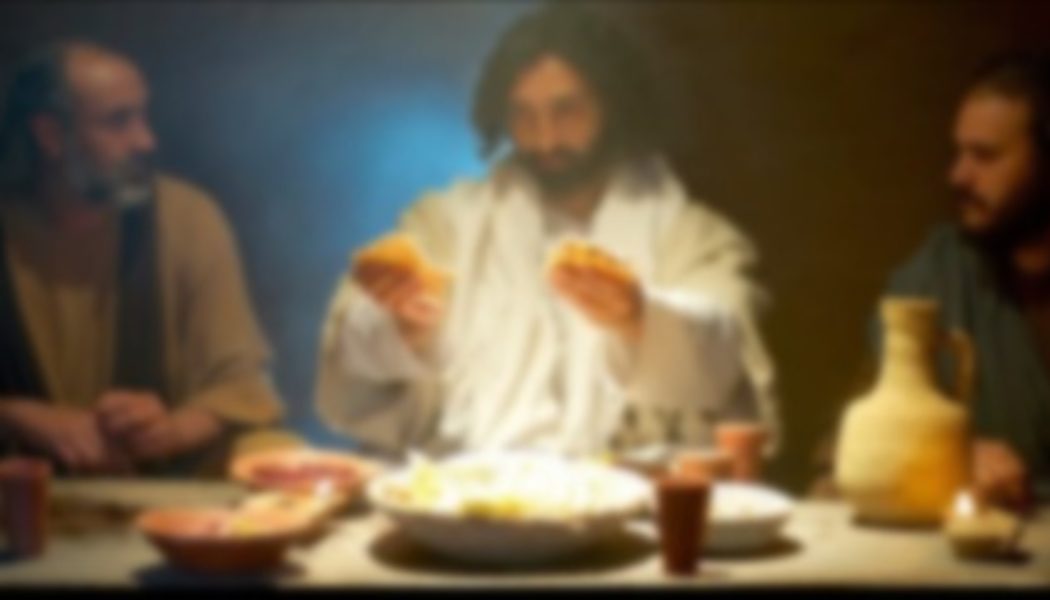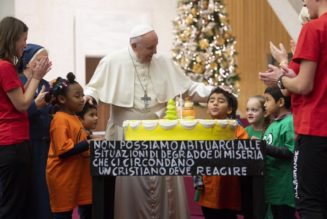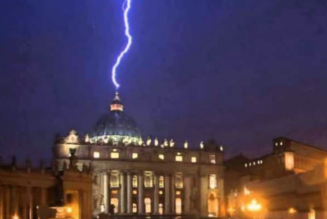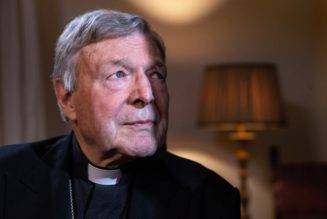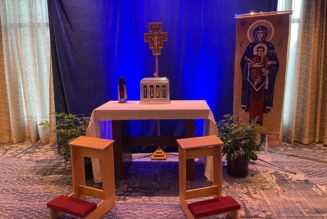3rd Sunday of Easter
Fr. Victor Feltes
On Easter Sunday afternoon, two of Jesus’ disciples were walking seven miles to Emmaus. Everyone journeys down the road of life. They have heard stories of Jesus’ Resurrection yet feel uncertain, pondering it, discussing it, and debating it. This is how they first meet the Risen Lord, with eyes not yet recognizing him as he walks with us. Jesus initiates the encounter. One whose name means “Glory to the Father” (whose life is meant to give glory to the Father) has questions about Jesus, the Nazarene called Christ. Cleopas and another disciple discover on their journey the very best person to answer the questions on their hearts. This meeting on the road to Emmaus parallels, beat-for-beat, how Jesus meets us in the Holy Mass.
Upon greeting and gathering his disciples near himself, Jesus begins a presentation of God’s Word. Starting with the Old Testament, he proclaims and explains how the Scriptures refer to him. Jesus preaches a homily pointing to himself. They hear, listen, and believe. These Christians would now profess as their creed, “I believe in Jesus Christ… For our sake he was crucified under Pontius Pilate; he suffered, died, and was buried, and on the third day he rose again in fulfillment of the Scriptures.” Next, they repeatedly petition the Lord: ‘Stay with us, for it is nearly evening and the day is almost over. We pray, Lord, that you will grace us amid the darkness of this world.’ And the Lord grants their requests.
Before, his disciples’ spirits had been heavy and downcast. But now that the Lord is with them, with a new spirit they lift up burning hearts to the Lord our God, rightly giving him thanks. Then at table, having presented to Jesus the customary bread and wine, he takes the bread, says the blessing, breaks it, and gives it to them. With that their eyes are opened and they recognize his real presence, made known to them in the breaking of bread. In conclusion, they go at once and with rapid steps walk seven miles more to share their Good News about Jesus Christ with others.
Every Sunday since those early days, Christ’s Church has celebrated the Breaking of Bread, the Holy Eucharist, the Mass, in fulfillment of his instruction to “Do this in memory of me.” As the Catechism of the Catholic Church notes, we have testimony from the second century showing that the basic outlines of early Eucharistic celebrations match the Holy Mass today. Around the year 155 A.D., St. Justin Martyr composed an open letter to the pagan Roman emperor to explain Christians’ beliefs and worship. St. Justin wrote:
“On the day we call the day of the sun (that is, Sunday), all who dwell in the city or country gather in the same place. The memoirs of the apostles and the writings of the prophets are read… When the reader has finished, he who presides over those gathered admonishes and challenges them to imitate these beautiful things. Then we all rise together and offer prayers for ourselves…and for all others… Then someone brings bread and a cup of water and wine mixed together to him who presides over the brethren. He takes them and offers praise and glory to the Father of the universe, through the name of the Son and of the Holy Spirit and for a considerable time he gives thanks that we have been judged worthy of these gifts. When he has concluded the prayers and thanksgivings, all present give voice to an acclamation by saying: ‘Amen!’ [Then] those whom we call deacons give to those present the ‘eucharisted’ bread, wine and water and take them to those who are absent.”
And St. Justin Martyr adds:
“This food we call the Eucharist, of which no one is allowed to partake except one who believes that the things we teach are true, and has received the washing for forgiveness of sins and for rebirth (that is, baptism), and who lives as Christ handed down to us (that is, the Christian moral life). For we do not receive these things as common bread or common drink… [W]e have been taught that the food consecrated… is the flesh and blood of that incarnate Jesus.”
Like the disciples on the road to Emmaus and St. Justin Martyr, we today are invited to encounter Jesus Christ at Holy Mass. Let us always recognize him, rejoice in him, and receive him with eyes opened with faith and hearts burning with love.
